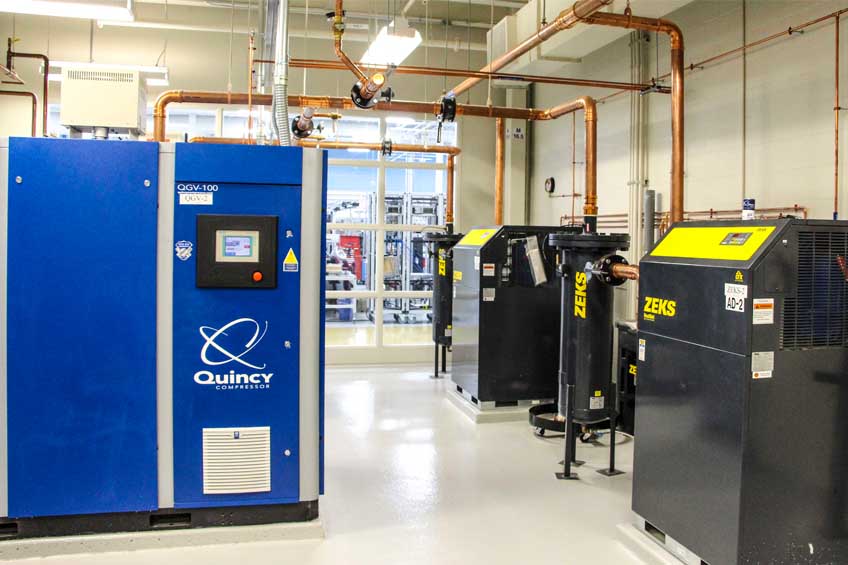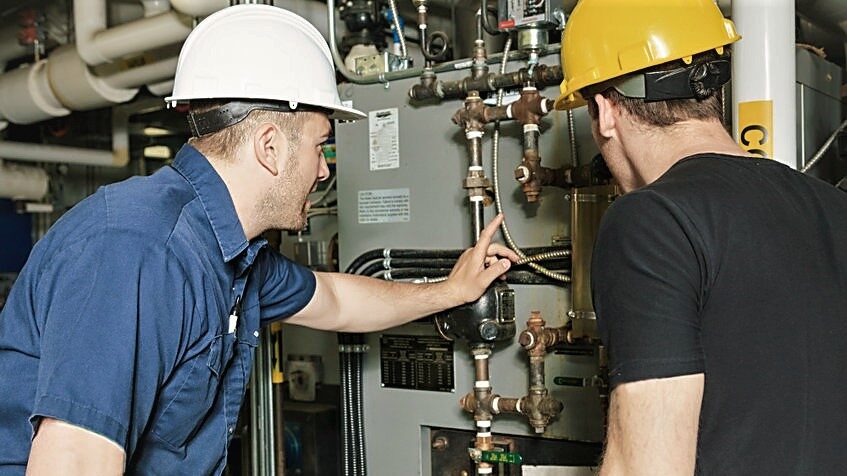How Can I Tell if My Air Compressor is Overheating? How Can I Prevent it?
Compressed air systems provide a critical energy source required for machinery and tools used in almost every industry. Unfortunately, the operating cost of air compressors can be quite high and if a business wants to remain competitive, proper maintenance of the compressed air equipment is required to assure reliable, efficient operation.

When an air compressor runs hot, it will lead to reduced oil life and increased loads on the compressed air treatment equipment. Worst case, the compressor will shut down due to overheating and possibly varnish the inside of the oil cooler. If left unattended this can lead to a snowball effect where the compressors cooling efficiency and oil life steadily get worse over time. Most problems like this can be eliminated by following a few simple steps which we will outline here.
What are common causes of overheating in Air Compressors?
Inadequate ventilation
Compressor room ventilation should be able to handle the heat rejection from all the equipment in the room running at 100% capacity while maintaining a room temperature below the maximum and above the minimum allowed. A negative ambient pressure in the room should be avoided and in some cases, a slight positive pressure in the room can be beneficial by keeping dust from the manufacturing area out of the room. If the compressor cooler is ducted make sure it doesn’t restrict the compressor’s cooling fan flow, a booster fan may be required in the ducting if the static back pressure is too high. Provisions in the ducting may be needed to prevent freezing temperatures from getting into the compressor during winter months, and heat recovery to send heat from the compressor room into the building during winter may be beneficial. Proper equipment spacing for airflow and maintenance is necessary also, for instance, if a compressor is placed too close to a wall or other equipment, cooling airflow can be restricted.
Insufficient or Degraded oil
It’s a good idea to check the compressors oil level often, take oil samples, and follow the manufacturer’s recommended maintenance requirements. Low or degraded oil will cause overheating problems and unnecessary wear and tear on the compressor itself.
Old or clogged components
Like any other piece of equipment, industrial air compressors have components that need to be serviced or replaced periodically. It’s very important to keep the coolers clean and replace things like oil filters and separator elements as required. If any of these items become clogged overheating will occur.
Defective thermal valve
A defective thermal valve can lead to overheating issues with your air compressor. The valve may need to be replaced at some point in the life of your machine. Air Compressor manufacturers commonly recommend having a replacement thermal valve on hand.
Frequency of use
Clearly, the more you use your compressor the more maintenance it will need. If you run your compressor 24/7 its possible overheating will occur eventually even if you’re doing a good job maintaining it. But these instances can be reduced or eliminated by being proactive. The temperature that your compressor operates at plays a major role in the amount of wear and tear it sees.

How can I tell if my air compressor is overheating?
Control Panel
Checking the compressors control panel is a good place to start when determining whether its running hot. It will show the operating temperature and usually display warnings or fault codes if the compressor shuts down. Tripping a circuit breaker may also indicate the compressor is overheating and needs too much power to do its job.
High Discharge Temperature
Always check your compressor manual, but optimum air-end discharge temperature for oil flooded rotary screw compressors is usually between 185 and 190 degrees F. If the temperature exceeds 200 degrees F, oil life can be reduced. Air compressors commonly have an automatic shutdown feature that activates at 220 to 230 degrees F. The compressed air discharge temperature out of the compressor package should be below 100 degrees F.
What steps can I take to prevent my Air Compressor from overheating?
Perform regular maintenance, including
- Inspection of oil and lubrication levels
- Checking the pressure drop over the filters
- Inspection of the air inlet filters for cleanliness and damage
- Checking the coolers and cleaning them by air jet if necessary
- Check equipment control panels for temperatures and any service or warning indicators.
Check the ventilation system to ensure it’s
- Clean
- Not blocked or cramped
- Sized for optimal efficiency
- Check any HVAC controls for proper operation
What can I do if I have questions regarding Air Compressors?
We have experienced and knowledgeable consultants at JHFOSTER. One of our technicians would be happy to discuss how to improve the efficiency of your Air Compressor.
Here at JHFOSTER we work with all types of compressed air systems and their components. You can trust us to meet your Air Compressor requirements.
We pride ourselves on being attentive to the needs of your business.
A JHFOSTER representative is available at 651.998.7428 or 855.688.0065
